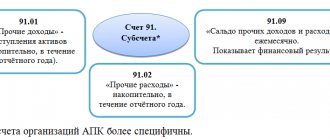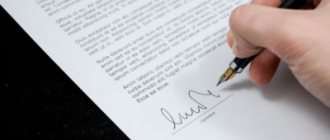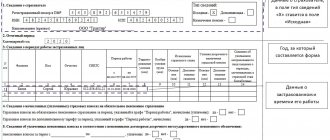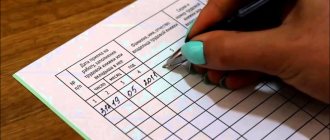Expenses for a business trip abroad differ from expenses for business trips within Russia. discuss how to correctly prepare an advance report for a business trip abroad with the 2020 sample in this consultation.
Also see:
- Nuances of organizing and processing a business trip
- How to arrange a business trip correctly
What you need to know about the trip report
Upon returning from a business trip, including a foreign one, the employee is obliged to report on it and submit an advance report to the accounting department.
The form of the advance report can be approved by the local act of the company. Or, the old-fashioned way, they use a report in form AO-1.
Regardless of the form, you must comply with the deadline for submitting the report - 3 business days after the end of the business trip.
The employee attaches all documents confirming expenses to the advance report for a business trip abroad. Namely:
- travel tickets and boarding passes (if tickets are electronic, you need to print them);
- receipts for the use of bed linen;
- hotel invoices and receipts (residential rental agreement), receipts;
- receipts of fees (agent's commission for purchasing a ticket, receipt for baggage transportation, etc.);
- documents confirming payment of visa or consular fees;
- other supporting documents.
ADVICE
For the convenience of preparing and conducting an advance report, supporting documents can be pasted onto blank A4 sheets with a field for filing documents on the left.
If the employer purchases tickets and books a hotel through an agency or directly from the contractor, documents for travel and accommodation (boarding pass or voucher, hotel bill or certificate of accommodation) must be attached to the report.
What should be attached to the expense report
Here are the documents that must be attached to the advance report (Clause 26 of the Regulations):
- travel certificate in form N T-10 (for business trips to CIS countries with which there are agreements that border marks are not made in the international passport) (Clause 15 of the Regulations) or copies of pages of the employee’s international passport with marks on border crossing;
— documents confirming travel expenses . Moreover, if an electronic air or railway ticket was purchased, then the supporting documents may be a printout of the itinerary receipt (ticket) and boarding pass, as well as documents confirming payment for the ticket (cash register receipt or payment terminal receipts, bank statement);
— documents confirming living expenses (invoices, payment receipts);
- documents confirming other expenses (if any): for visas and medical insurance, for paying for bed linen on the train, excess baggage, entertainment services, postage, communication services, etc.
For convenience, you can take several sheets of blank paper, title each by type of expense (for example, “Transportation expenses,” “Hotel expenses,” “Other expenses”) and stick the corresponding expense documents on them.
But it doesn’t matter what the employee spent his daily allowance on. There is no need to confirm this with any checks, receipts or other similar documents.
Attach to the advance report an official assignment form for sending on a business trip (Form N T-10a) with completed section. 12 “A brief report on the completion of the task” (Clause 26 of the Regulations) is not necessary, since the tax authorities believe that the official task together with the report on its completion are not the documents necessary to confirm expenses.
Currency conversion
Let's consider a situation where an employee received an advance payment for a business trip in rubles, and the expenses were incurred in foreign currency.
An employee can independently exchange rubles for foreign currency at an exchange office in the Russian Federation or while already on a business trip abroad. In this case, the rate is taken on the date the employee purchased the currency, if he attached a certificate from the exchange office to the advance report.
It often happens that an employee cannot confirm the fact of purchasing currency. For example, due to the loss of a certificate from the bank about the completed exchange. It may also be that when exchanging currency in another country, the exchange office did not issue the employee with a conversion document.
In this case, for recalculation, they take the official exchange rate of the Central Bank on the date of approval of the advance report by the head of the company. This position is confirmed by letters from the Federal Tax Service dated March 21, 2011 No. KE-4-3/4408 and the Ministry of Finance dated March 31, 2011 No. 03-03-06/1/193.
For an example of recalculating daily allowances issued in foreign currency, see our article “Taxes and contributions on daily allowances abroad: calculation examples.”
We take into account travel expenses
how the main business trip expenses are recognized for tax purposes .
| Type of expenses | Income tax | Personal income tax | Insurance contributions to the Pension Fund, Social Insurance Fund, Compulsory Compulsory Medical Insurance and Compulsory Compulsory Compulsory Medical Insurance | |
| Daily allowance in the amounts provided for by local regulations or collective agreement | Fully included in expenses | Not withheld from amounts not exceeding: (or) 700 rubles. per day - for business trips around Russia; (or) 2500 rub. per day - for business trips abroad. If the daily allowance was paid in a larger amount, then the excess amounts are subject to personal income tax | Not credited | |
| Daily allowances for the day of arrival from a business trip abroad must be paid according to the norm established for business trips in Russia (in rubles). And even if the regulations on business trips adopted by your company state that daily allowances for the last day of a business trip are paid in the same amount as for all days of a business trip abroad (for example, 2,500 rubles), only 700 rubles will not be subject to personal income tax. If daily allowances were paid in foreign currency, then in order to compare the amount of daily allowances with the established ruble standard for the purpose of calculating personal income tax, you need to convert them into rubles at the official exchange rate in effect on the date of payment of daily allowances (and not on the date of approval of the advance report) | ||||
| Travel expenses: — to the place of business trip and back (including business class or in SV carriages); — to the airport, train station, pier (including by taxi) and back | Counted into expenses without restrictions | Doesn't hold | Not credited | |
| Expenses for renting residential premises - subject to availability of supporting documents | Counted into expenses without restrictions | The entire hotel payment amount is not deducted. If there are no supporting documents, then personal income tax is imposed on amounts in excess of: (or) 700 rubles. per day - for business trips around Russia; (or) 2500 rub. per day - for foreign business trips | Not credited. If there are no supporting documents, then the amount reimbursed to the employee is not subject to contributions within the limits established in the local regulations. If you have not established such standards, then urgently supplement your business travel regulations with a procedure for reimbursing employees for unconfirmed expenses in order to avoid paying contributions | |
| Expenses for service in bars, restaurants, in the room, as well as fees for the use of recreational and health facilities (for example, a fitness room, sauna, etc.) are not taken into account for profit tax purposes. | ||||
| Costs for processing and issuing visas, international passports, vouchers, invitations, etc. | Counted into expenses without restrictions | Doesn't hold | Not credited | |
| Payment for communication services | ||||
| Payment for services of VIP lounges (superior lounges) at airports | ||||
| You can justify the cost of paying for VIP rooms, for example, like this: service in the VIP room provides access to telephone and other types of communications, as well as access to the Internet, which allows a business trip employee to quickly solve production problems that require his participation | ||||
Advance report
You can see how to correctly fill out an advance report for a foreign business trip here:
As a general rule, the employee must independently fill out the advance report.
In the advance report, it is important to indicate all expenses incurred by the employee during a business trip abroad.
If an employee has incurred any expenses that are not provided for in the company’s organizational and administrative document, it is necessary to attach to the report a memo with a positive resolution from the manager.
On a business trip abroad, unexpected expenses may arise - taxis, dry cleaning, expenses for cellular communications or the Internet, buying a laptop, etc., etc. Each situation must be considered separately.
You can learn about the specifics of work while constantly on business trips abroad from our article “Work related to business trips abroad: what you need to know.”
We prepare an advance report
Upon returning from a business trip, the employee must, within 3 working days, under your strict guidance, fill out an advance report (Form N AO-1) about the money spent on the business trip . Before submitting the expense report to the manager (other authorized person) for approval, you need to:
— check the report for correct completion, as well as arithmetic errors;
— make sure that the supporting documents indicated in the report are actually attached to it and that they are all drawn up properly.
Expenses of a business traveler in foreign currency
submit his advance report on expenses incurred to the accounting department within 3 days If the employee attached expense documents in foreign currency to the report, the traveler’s expenses must be reflected in the accounting records in rubles and foreign currency . This approach is reflected in clause 20 of PBU 3/2006.
Expenses of a business traveler are recognized on the date of approval by the head of the advance report (clause 16 of PBU 10/99 “Expenses of the organization”):
- costs for ordinary activities, if they are related to the ordinary activities of the organization (for example, with the performance of work or provision of services, production of products, sale of goods) (clause 5 of PBU 10/99);
- costs for the acquisition of tangible assets (fixed assets, intangible assets, goods and materials, inventories, etc.), if the business trip is related to their acquisition or creation (clause 8 of PBU 6/01 “Accounting for fixed assets”, clause 8 of PBU 14/2007 “ Accounting for intangible assets”, paragraph 6 of PBU 5/01 “Accounting for inventories”);
- other expenses if the foreign business trip is related to other operations (clause 4 and PBU 10/99).
Currency rate for converting traveler's expenses
An employee’s expenses incurred in foreign currency while on a business trip must be converted into rubles at the following Central Bank rate:
1. On the date of payment of the travel advance in foreign currency - in terms of expenses within the amount of the advance issued (clause 9 of PBU 3/2006).
Moreover, under the date of issuance of the advance in foreign currency, the following is considered under the report:
- date of issue of cash currency from the company's cash desk;
- date of transfer of currency to the employee’s personal bank card;
- date of payment by corporate bank card in foreign currency;
- date of cash withdrawal from a corporate bank card in foreign currency.
2. As of the date of approval by the manager of the advance report - in terms of expenses in excess of the accountable amount. That is, if there is an overexpenditure according to the advance report (clauses , PBU 3/2006, Appendix to PBU 3/2006).
Settlements with the employee after submitting the advance report
If settlements with an employee who returned from abroad are not completed, the balance of the advance is recalculated at the Central Bank exchange rate on the date of approval of the advance report - on reporting dates (as a receivable) and on the date of return of the advance unspent by the employee (clauses , PBU 3/ 2006, attachment to the letter of the Ministry of Finance of Russia dated December 28, 2016 No. 07-04-09/78875).
The overexpenditure on the advance report (i.e., the organization's debt to the employee in foreign currency), formed on the date of its approval, is recalculated - on the reporting dates (as a creditor) and on the date of repayment of the debt to the employee.






